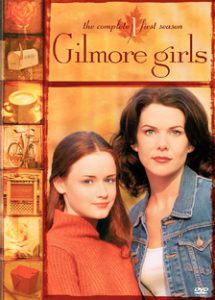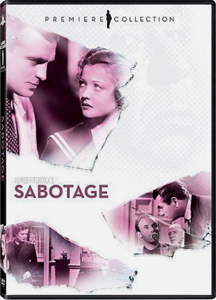If you want an early Alfred Hitchcock film that shows his core traits and skills in a tight 76-minute package, try “Sabotage” (1936). This film from his British black-and-white era illustrates the basic principles of low-level spy-games plotting in London’s between-wars era.
It features a ticking-bomb, “watching the clock” sequence that’s done more smoothly and more personally than many modern actioners. Then – in a preview of what makes his later films great – it features a final act where all the puzzle pieces are present but we don’t know exactly how they’ll fit together.
After the bomb-on-a-bus sequence, emotions run high for the characters. And they might for the viewer too, as “Sabotage” features an event you might be surprised to find in this censorial era of filmmaking.

“Sabotage” (1936)
Director: Alfred Hitchcock
Writers: Charles Bennett (screenplay), Joseph Conrad (novel)
Stars: Sylvia Sidney, Oscar Homolka, Desmond Tester
The vibrancy of the setting is why I like “Sabotage” a notch more than other Hitchcocks of this period. The Verloc family – husband Karl (Oscar Homolka), the wife (Sylvia Sydney) and the wife’s kid brother Stevie (Desmond Tester) – live behind the movie theater they own and operate. On the street nearby is a produce stand, where Ted (John Spencer) works; he’s actually an undercover government agent.
She can’t stand it, she knows he planned it
Although we’re not yet in the period where prominent scores help propel Hitchcock films, “Sabotage” has energy. The theater is often filled with laughing people, and the streets are always crowded with activity. This is a small film only in relation to Hitch’s later pieces of grandeur; it’s always bustling, requiring tons of extras.
Despite the seeming success of the theater, Karl needs more money for some reason, so he’s a low-level saboteur. The film opens with Karl shutting down London’s lights by literally putting sand in the operations at the gas company.
As he often does, Hitch doesn’t tell us everything, but he tells us enough. I wondered about why the wife married Verloc, since it’s hard to imagine that she ever liked him. One might say we’d get answers along those lines four years later with “Rebecca.” This was an era when many women married to help their economic prospects, rather than out of love.
This was also before the period of the noble, job-oriented spy; film scholars say 1946’s “Notorious” was pivotal in that change. So, yes, square-jawed Ted is an undercover agent, but it’s always clear he has a thing for Mrs. Verloc, making him an intriguing wild card.
“Sabotage” doesn’t rank high among Hitch’s catalog only because it’s not as layered and grand as his later classics. But among his Thirties work, it has remarkable entertainment value, rising above the level of dry film-history homework.

RFMC’s Alfred Hitchcock series reviews works by the Master of Suspense, plus remakes and source material. Click here to visit our Hitchcock Zone.

